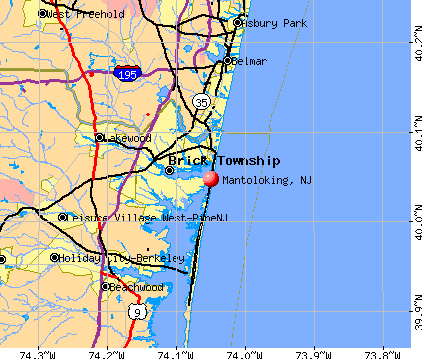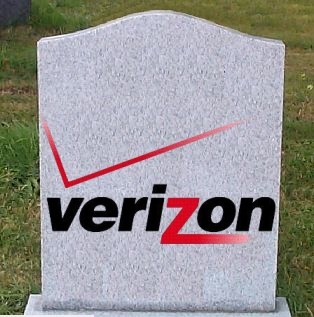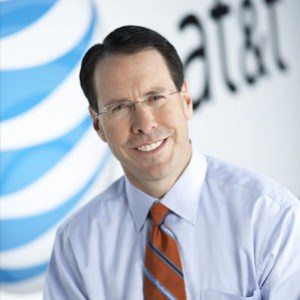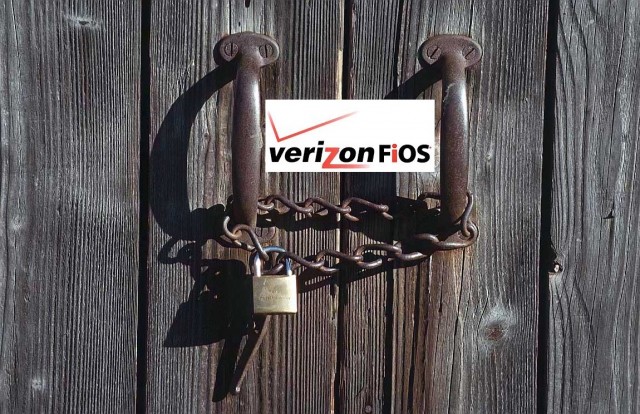 Six months after Hurricane Sandy struck the northeastern United States, a significant number of Verizon customers are now learning they will never get their landline service back.
Six months after Hurricane Sandy struck the northeastern United States, a significant number of Verizon customers are now learning they will never get their landline service back.
Mantoloking is the first town in New Jersey — but not the last — that will no longer be able to get landline service from the telephone company.
In its place, Verizon offers Voice Link, a home phone replacement that works exclusively over the Verizon Wireless network.
About 30 customers have signed up for the service after being without a home phone for a half a year.
The device looks like a wireless router, with an antenna and several jacks on the back to deliver service over your home’s existing telephone wiring. Instead of connecting with Verizon’s wired network, the unit receives a signal from the nearest Verizon Wireless cell tower to make and receive telephone calls.
Verizon is enticing customers to use this device instead of repairing its damaged network by promising free installation, unlimited nationwide calling and support for 911 and basic phone features like Caller ID and voice mail. For now, the service will not cost any more than a wired landline phone.
For Verizon’s bean counters, Voice Link is an inexpensive alternative to replacing copper wiring with FiOS fiber optic service. Verizon previously announced that maintenance on its aging copper wire network was becoming increasingly expensive.
“It acts just like a regular phone,” Tom Maguire, Verizon’s senior vice president of national operations told the Asbury Park Press. “There’s a dial tone. It has 911 capability, so if you dial 911 the emergency services guys are going to know exactly where you are.”
But members of Verizon’s unions who have had hands-on experience testing Voice Link suggest it isn’t everything Verizon says it is. The International Brotherhood of Electrical Workers’ Local 824 points out Voice Link was not intended to serve just anybody. It will deliver a voice-only service unsuitable for faxing, DSL, or data communications of any kind.

Mantoloking is located on New Jersey’s barrier island.
Stop the Cap! has also heard from Verizon customers directly affected by the forced migration to wireless, and many are unhappy about it.
“This is the death knell for wired broadband in areas bypassed by cable along coastal New Jersey,” shares Dale Smith. “We lost our Verizon landline and DSL service during Sandy and have had nothing but a cell phone for the last six months because Verizon has dragged its feet.”
Smith says a Verizon manager told him the company was “evaluating certain service areas” for an “exciting new wireless product” instead of repairing or replacing the company’s wired network.
“While they were ‘evaluating,’ we were getting no dial tone and huge cell bills from Verizon — good for them, but not for us.”
Smith had a chance to view Voice Link in action and thinks it represents a Verizon wolf in sheep’s clothing.
“It sounds remarkably better than a cell phone, which tells you something about how much effort manufacturers of smartphones spend on voice calling, but that is where the good ends and the problems begin,” Smith said. “The most annoying is no caller ID with name and fairly frequent call delays and failed calls.”
Smith says the Caller ID displays the caller’s number, but not name – a feature he relied on heavily. He found about 30 percent of test calls either took more than 10 seconds to start ringing, or never rang at all.
“Sometimes the calls would time out and other times you would just sit and listen in silence until the phone at the other end finally started ringing,” Smith said.
He also worries about call reliability.
“What happens if you are in a marginal signal area or the cell tower gets overcongested and starts dropping calls, or the power goes out at the cell tower? You can’t use your cell phone either in that case.”
Anne contacted us after complaining to the Federal Communications Commission that Verizon is dumping its reliable landline network for unreliable wireless, and is frustrated the FCC does not seem to understand what is going on in New York and New Jersey.
“The response from the FCC doesn’t even bother to recognize that Verizon isn’t going to fiber service from copper, but is relying on very unreliable wireless,” Anne tells Stop the Cap! “For a vulnerable area such as the barrier island, wireless will likely be useless during a disaster/big emergency, especially where electricity goes out.”
 The FCC’s short response to Anne’s detailed complaint:
The FCC’s short response to Anne’s detailed complaint:
If Verizon wishes to replace the copper wiring with fiber it is strictly their business desicion (sic). — Representative Number : TSR54
“I can’t believe this email is a product of the United States government,” Anne told us. “Why does the FCC exist at all? It is a complete waste of taxpayer money.”
In addition to filing a complaint with the FCC, Anne has tried to help her elderly mother get her home phone back on the barrier island that was damaged by Hurricane Sandy. As of a week ago, every utility, except Verizon phone service, has been restored.
“Trying to get a straight story from Verizon has been impossible,” Anne said. “What a nightmare.”

The landline network is dead.
Jim Mudd also takes care of his parents who are headed back to the New Jersey coast in an area that still lacks Verizon phone service after Sandy washed away utility infrastructure. New poles have been placed and the power is back, but Verizon is nowhere to be found.
“Our local town officials tell us Verizon was hinting we might end up with Voice Link as well, although nothing formal has been announced,” Mudd writes. “This would be a major problem for us, because Voice Link will not work with our home alarm system or my parents’ medical monitoring service.”
Mudd says Verizon confirmed to him that data services of any kind, including faxing or credit card processing is not possible with the first version of the service, although Verizon said it was exploring better options in the future.
“After waiting a half a year for Verizon to restore my home phone, I hope they pardon me for not waiting around for them,” Mudd said. “We signed up with Comcast the moment they got service back, but they know they have a working monopoly here now, especially with Verizon signaling it wants to pull out of anything that is not wireless.”
“What annoys me is Verizon wanted rate increases back in the 1990s and on to pay for upgrading their network and replace it with fiber,” Mudd adds. “We paid those surcharges or higher rates like everyone else and we are going to get nothing to show for it. Don’t replace the copper, but don’t abandon us with wireless either. We paid for something better: fiber.”
[flv width=”640″ height=”380″]http://www.phillipdampier.com/video/Asbury Press Following-Sandy-destruction-Verizon-switches-all-wireless-service 5-2-13.flv[/flv]
Verizon’s Tom Maguire demonstrates the company’s Voice Link landline replacement, courtesy of the Asbury Park Press. (1 minute)
 AT&T says government regulations have hampered the company’s plans to roll out faster broadband networks to areas where consumers and businesses want faster speeds.
AT&T says government regulations have hampered the company’s plans to roll out faster broadband networks to areas where consumers and businesses want faster speeds.


 Subscribe
Subscribe




 Six months after Hurricane Sandy struck the northeastern United States, a significant number of Verizon customers are now learning they will never get their landline service back.
Six months after Hurricane Sandy struck the northeastern United States, a significant number of Verizon customers are now learning they will never get their landline service back.
 The FCC’s short response to Anne’s detailed complaint:
The FCC’s short response to Anne’s detailed complaint:
